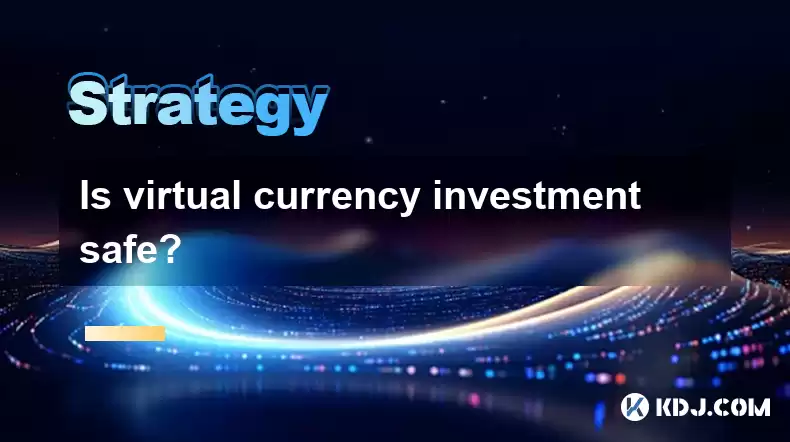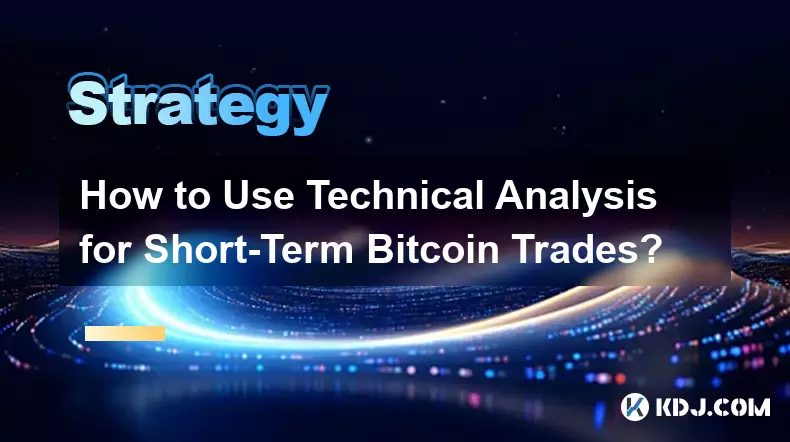-
 bitcoin
bitcoin $87959.907984 USD
1.34% -
 ethereum
ethereum $2920.497338 USD
3.04% -
 tether
tether $0.999775 USD
0.00% -
 xrp
xrp $2.237324 USD
8.12% -
 bnb
bnb $860.243768 USD
0.90% -
 solana
solana $138.089498 USD
5.43% -
 usd-coin
usd-coin $0.999807 USD
0.01% -
 tron
tron $0.272801 USD
-1.53% -
 dogecoin
dogecoin $0.150904 USD
2.96% -
 cardano
cardano $0.421635 USD
1.97% -
 hyperliquid
hyperliquid $32.152445 USD
2.23% -
 bitcoin-cash
bitcoin-cash $533.301069 USD
-1.94% -
 chainlink
chainlink $12.953417 USD
2.68% -
 unus-sed-leo
unus-sed-leo $9.535951 USD
0.73% -
 zcash
zcash $521.483386 USD
-2.87%
Is virtual currency investment safe?
Virtual currency investments, though potentially rewarding, require careful consideration of risk factors and implementation of risk mitigation strategies to navigate the inherent volatility and cybersecurity risks.
Jan 08, 2025 at 03:26 pm

- Understanding the nature of virtual currency investments
- Assessing risk factors associated with virtual currency investments
- Implementing strategies for mitigating risks
- Seeking professional financial advice and guidance
- Virtual currencies, also known as cryptocurrencies, are digital or virtual tokens that use cryptography for security and operate independently of central banks or governments.
- Unlike fiat currencies, which are issued and regulated by central banks, the issuance and circulation of virtual currencies are decentralized and often controlled by the community of users.
- Virtual currencies can be used for various purposes, including as a store of value, medium of exchange, or investment asset.
- The value of virtual currencies is highly volatile, subject to market forces, regulatory uncertainties, and news events.
- Price volatility: The value of virtual currencies can fluctuate significantly within short periods. Unexpected events, such as regulatory changes or security breaches, can trigger sudden price swings.
- Cybersecurity risks: Virtual currency exchanges and wallets can be vulnerable to cyberattacks, which can result in the theft of funds.
- Regulatory uncertainties: The regulatory landscape for virtual currencies is evolving, and regulations may vary from jurisdiction to jurisdiction. Uncertainties in regulation can impact the value and stability of virtual currencies.
- Lack of insurance: Unlike traditional investments, virtual currencies are not federally insured. If a virtual currency exchange or wallet is compromised, it is unlikely that investors will be able to recover their lost funds.
- Operational risks: Virtual currency exchanges and wallets may experience technical outages or operational disruptions, which can hinder access to funds.
- Diversify investments: Avoid investing a large portion of your portfolio in a single virtual currency. Instead, consider diversifying your investments across multiple virtual currencies and other asset classes.
- Use reputable exchanges and wallets: Only store your virtual currencies on reputable exchanges and wallets that implement strong security measures.
- Enable two-factor authentication (2FA): Activate 2FA on all accounts related to your virtual currency investments to prevent unauthorized access.
- Store funds offline: Consider storing a significant portion of your virtual currency holdings in cold storage, which is offline and less vulnerable to cyberattacks.
- Monitor market trends and news: Stay abreast of the latest regulatory updates, market conditions, and news events that may impact the value of your virtual currencies.
- Consult with a qualified financial advisor who specializes in virtual currency investments. They can provide personalized guidance on asset allocation, risk management, and tax implications.
- Join reputable virtual currency discussion forums and communities. Engaging with experts and fellow investors can provide valuable insights and perspectives.
- Attend virtual currency conferences and webinars to stay informed about the latest industry developments and technologies.
- Is virtual currency a safe investment?
Virtual currency investments are inherently risky due to price volatility, cybersecurity risks, regulatory uncertainties, and a lack of insurance. However, risk can be mitigated through diversification, using reputable exchanges and wallets, and seeking professional guidance.
- What are the most secure virtual currency exchanges?
Binance, Coinbase Pro, Kraken, and Gemini are among the most reputable and secure virtual currency exchanges in the market. They implement robust security measures and have a proven track record of reliability.
- What is cold storage in virtual currency?
Cold storage refers to the practice of storing virtual currencies offline, typically on a hardware wallet or paper wallet. It provides an additional layer of security by protecting funds from hacking and theft on online exchanges.
- What are the tax implications of virtual currency investments?
The tax treatment of virtual currencies varies depending on the jurisdiction. In many cases, virtual currencies are classified as property or capital assets, and profits from their sale are subject to capital gains tax.
Disclaimer:info@kdj.com
The information provided is not trading advice. kdj.com does not assume any responsibility for any investments made based on the information provided in this article. Cryptocurrencies are highly volatile and it is highly recommended that you invest with caution after thorough research!
If you believe that the content used on this website infringes your copyright, please contact us immediately (info@kdj.com) and we will delete it promptly.
- Crypto Coaster: Bitcoin Navigates Intense Liquidation Hunt as Markets Reel
- 2026-02-01 00:40:02
- Bitcoin Eyes $75,000 Retest as Early February Approaches Amid Shifting Market Sentiment
- 2026-02-01 01:20:03
- Don't Miss Out: A Rare £1 Coin with a Hidden Error Could Be Worth a Fortune!
- 2026-02-01 01:20:03
- Rare £1 Coin Error Could Be Worth £2,500: Are You Carrying a Fortune?
- 2026-02-01 00:45:01
- Navigating the Crypto Landscape: Risk vs Reward in Solana Dips and the Allure of Crypto Presales
- 2026-02-01 01:10:01
- NVIDIA CEO Jensen Huang's Take: Crypto as Energy Storage and the Evolving Role of Tech CEOs
- 2026-02-01 01:15:02
Related knowledge

How to Develop a Crypto Exit Strategy to Secure Your Profits?
Jan 22,2026 at 10:19am
Understanding Market Cycles and Timing1. Cryptocurrency markets operate in distinct phases: accumulation, markup, distribution, and markdown. Recogniz...

How to Find and Invest in Promising DePIN Crypto Projects?
Jan 19,2026 at 06:19pm
Understanding DePIN Fundamentals1. DePIN stands for Decentralized Physical Infrastructure Networks, combining real-world hardware deployment with bloc...

How to Find Liquidity Pools with the Lowest Impermanent Loss Risk?
Jan 25,2026 at 05:59pm
Fundamental Characteristics of Low-Risk Liquidity Pools1. Stablecoin pairs dominate the lowest impermanent loss environments due to minimal price dive...

How to Analyze Market Sentiment Using the Crypto Fear & Greed Index?
Jan 24,2026 at 09:39am
Understanding the Crypto Fear & Greed Index1. The Crypto Fear & Greed Index is a composite metric that aggregates data from multiple sources including...

How to Hedge Your Crypto Portfolio Against a Market Crash?
Jan 19,2026 at 03:40pm
Risk Assessment and Portfolio Allocation1. Determine the total exposure to high-volatility assets such as memecoins or newly launched tokens without a...

How to Use Technical Analysis for Short-Term Bitcoin Trades?
Jan 25,2026 at 01:00pm
Understanding Candlestick Patterns1. Bullish engulfing formations often appear after a sustained downtrend and signal potential reversal points where ...

How to Develop a Crypto Exit Strategy to Secure Your Profits?
Jan 22,2026 at 10:19am
Understanding Market Cycles and Timing1. Cryptocurrency markets operate in distinct phases: accumulation, markup, distribution, and markdown. Recogniz...

How to Find and Invest in Promising DePIN Crypto Projects?
Jan 19,2026 at 06:19pm
Understanding DePIN Fundamentals1. DePIN stands for Decentralized Physical Infrastructure Networks, combining real-world hardware deployment with bloc...

How to Find Liquidity Pools with the Lowest Impermanent Loss Risk?
Jan 25,2026 at 05:59pm
Fundamental Characteristics of Low-Risk Liquidity Pools1. Stablecoin pairs dominate the lowest impermanent loss environments due to minimal price dive...

How to Analyze Market Sentiment Using the Crypto Fear & Greed Index?
Jan 24,2026 at 09:39am
Understanding the Crypto Fear & Greed Index1. The Crypto Fear & Greed Index is a composite metric that aggregates data from multiple sources including...

How to Hedge Your Crypto Portfolio Against a Market Crash?
Jan 19,2026 at 03:40pm
Risk Assessment and Portfolio Allocation1. Determine the total exposure to high-volatility assets such as memecoins or newly launched tokens without a...

How to Use Technical Analysis for Short-Term Bitcoin Trades?
Jan 25,2026 at 01:00pm
Understanding Candlestick Patterns1. Bullish engulfing formations often appear after a sustained downtrend and signal potential reversal points where ...
See all articles





















![THIS IS THE HARDEST COIN TO GET [POLY DASH] THIS IS THE HARDEST COIN TO GET [POLY DASH]](/uploads/2026/01/31/cryptocurrencies-news/videos/origin_697e0319ee56d_image_500_375.webp)




















































